2019 Facilitators & Presenters
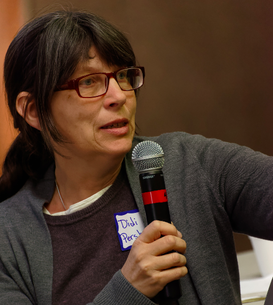
Didi Pershouse is the author of The Ecology of Care: Medicine, Agriculture, Money, and the Quiet Power of Human and Microbial Communities and Understanding Soil Health and Watershed Function. She is a lead author for the "Future Directions" chapter of the UN-FAO Technical Manual on Soil Organic Carbon Management, and a contributing author for Health in the Anthropocene.
Pershouse is a skilled facilitator, who can bring conservatives and liberals together into effective working groups with common goals: improving soil health, public health, water security, and regional resilience through simple changes in land management. Both online and in-person, her participatory workshops engage farmers and ranchers, policymakers, investors, and scientists in systems thinking and deep listening, to allow for emergent strategies. She was one of five speakers at the United Nations-FAO World Soil Day in 2017.
At the Center for Sustainable Medicine, she developed a practice and theoretical framework for systems-based ecological medicine—to restore health to people as well as the environmental and social systems around them. After 22 years of clinical work with patients, Pershouse now travels widely in North America and Europe as a speaker, teacher, and consultant.
In 2018, she founded the Land and Leadership Initiative. She is the board chair of the Soil Carbon Coalition, and a co-founder of Regenerate Earth and the "Can we Rehydrate California?" Initiative.
She is currently working on projects with the UN-FAO Farmer Field School program; the Climate Resilient Zero Budget Natural Farming Initiative in Andhra Pradesh, India; the 4p1000 Initiative, and the Northeast (US) Healthy Soils Policy Group. You can learn more about her work at www.didipershouse.com.
Pershouse is a skilled facilitator, who can bring conservatives and liberals together into effective working groups with common goals: improving soil health, public health, water security, and regional resilience through simple changes in land management. Both online and in-person, her participatory workshops engage farmers and ranchers, policymakers, investors, and scientists in systems thinking and deep listening, to allow for emergent strategies. She was one of five speakers at the United Nations-FAO World Soil Day in 2017.
At the Center for Sustainable Medicine, she developed a practice and theoretical framework for systems-based ecological medicine—to restore health to people as well as the environmental and social systems around them. After 22 years of clinical work with patients, Pershouse now travels widely in North America and Europe as a speaker, teacher, and consultant.
In 2018, she founded the Land and Leadership Initiative. She is the board chair of the Soil Carbon Coalition, and a co-founder of Regenerate Earth and the "Can we Rehydrate California?" Initiative.
She is currently working on projects with the UN-FAO Farmer Field School program; the Climate Resilient Zero Budget Natural Farming Initiative in Andhra Pradesh, India; the 4p1000 Initiative, and the Northeast (US) Healthy Soils Policy Group. You can learn more about her work at www.didipershouse.com.
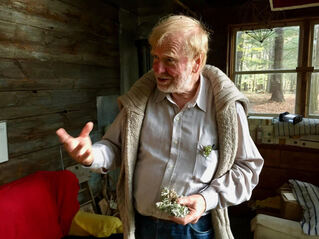
Walter Jehne is an internationally known Australian soil microbiologist and climate scientist. He is passionate about educating farmers, policymakers and others about “the soil carbon sponge” and its crucial role in reversing and mitigating flooding, drought, wildfires, and rising global temperatures. His work shows how we can safely cool the climate by repairing our disrupted hydrological cycles. That project requires us to return some of the excess carbon in the atmosphere to the soil, where it can build a sponge that soaks up water.
In 2017, he participated in an invitation-only United Nations Food and Agriculture Organization conference in Paris aimed at bringing soil into the next Intergovernmental Panel on Climate Change (IPCC) report. Jehne was an early researcher on glomalin, mycorrhizal fungi, and root ecology. He grew up in the bush, surrounded by nature. At university, he chose the field of microbiology because it encompasses all life processes in microcosm. As a young man, he started his career working on forest dieback diseases in relation to soil microbial interactions. Later he realized that the disease fungi were actually our friends because they’re involved with symbiosis, and disease serves to remove and recycle moribund organisms.
As a research scientist at CSIRO (Australia’s scientific research organization), Jehne investigated the potential of mycorrhizal fungi to recolonize toxic, degraded soils and to rebuild productive biosystems. His curiosity took him to China to study why the country’s traditional agriculture was so productive.
Eventually, he worked with his federal government on changing the paradigm of land management to foster strategic innovation. He retired 15 years ago so he could get back to practically applying science and grassroots empowerment. He travels widely to work with farmers and policymakers to share his understanding of biology's role in restoring a healthy climate.
In 2017, he participated in an invitation-only United Nations Food and Agriculture Organization conference in Paris aimed at bringing soil into the next Intergovernmental Panel on Climate Change (IPCC) report. Jehne was an early researcher on glomalin, mycorrhizal fungi, and root ecology. He grew up in the bush, surrounded by nature. At university, he chose the field of microbiology because it encompasses all life processes in microcosm. As a young man, he started his career working on forest dieback diseases in relation to soil microbial interactions. Later he realized that the disease fungi were actually our friends because they’re involved with symbiosis, and disease serves to remove and recycle moribund organisms.
As a research scientist at CSIRO (Australia’s scientific research organization), Jehne investigated the potential of mycorrhizal fungi to recolonize toxic, degraded soils and to rebuild productive biosystems. His curiosity took him to China to study why the country’s traditional agriculture was so productive.
Eventually, he worked with his federal government on changing the paradigm of land management to foster strategic innovation. He retired 15 years ago so he could get back to practically applying science and grassroots empowerment. He travels widely to work with farmers and policymakers to share his understanding of biology's role in restoring a healthy climate.
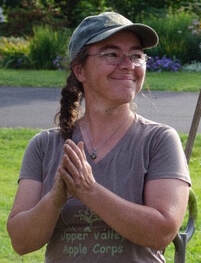
Cat Buxton is a busy cross-pollinator from in Sharon, VT focused on ecosystem resilience. Her business, Grow More, Waste Less, is empowering and connecting communities to affect positive change from the ground up.
She leads Land Listener workshops with the Soil Carbon Coalition, and organizes the Upper Valley Apple Corps and a host of other projects including the Vermont Healthy Soils Coalition. A self-described microbe geek, Cat loves to talk about bugs, soil, gardening, and composting, pretty much wherever she goes.
She manages the edible schoolyard at Thetford Elementary School, weaving it into K-6 project-based learning, and is a technical guide for school compost systems. She consults, teaches, and presents about soil and ecosystem health to individuals of all ages and groups of all sizes.
She leads Land Listener workshops with the Soil Carbon Coalition, and organizes the Upper Valley Apple Corps and a host of other projects including the Vermont Healthy Soils Coalition. A self-described microbe geek, Cat loves to talk about bugs, soil, gardening, and composting, pretty much wherever she goes.
She manages the edible schoolyard at Thetford Elementary School, weaving it into K-6 project-based learning, and is a technical guide for school compost systems. She consults, teaches, and presents about soil and ecosystem health to individuals of all ages and groups of all sizes.
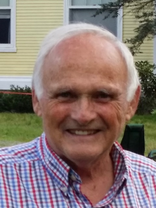
Dan Young is a retired engineer with specialties in chemical and environmental engineering. He has forty years of experience in chemical-pharmaceutical production processes, water treatment processes, high temperature thermal treatment processes, energy efficiency, groundwater quality management and contaminated site remediation.
He has a bachelors degree in chemical engineering from the University of California at Berkeley and a masters degree in environmental science from the New Jersey Institute of Technology in Newark, New Jersey. Dan's specialty is environmental thermodynamics of non-equilibrium systems with particular interest in how the Second Law of thermodynamics effects biological systems and climate change.
He has a bachelors degree in chemical engineering from the University of California at Berkeley and a masters degree in environmental science from the New Jersey Institute of Technology in Newark, New Jersey. Dan's specialty is environmental thermodynamics of non-equilibrium systems with particular interest in how the Second Law of thermodynamics effects biological systems and climate change.
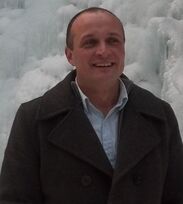
Abe Collins is a grazing consultant and cofounder of LandStream. LandStream connects people and quantified landscapes to grow deep-soil watersheds and ecological economics. He has grazed sheep, beef and dairy livestock and lives in Winooski, VT.